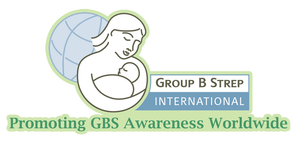Amelia is my first child. At 39 weeks I went into labor (my water broke). When I got to the hospital, everything was fine. Amelia's heart rate was a steady 137 bpm. After being in labor for a couple hours, Amelia's heart rate began to drop until the doctors couldn't find a heart beat. I was rushed for an emergency C-section. It took the doctors 15 minutes to resuscitate Amelia, and she was put on a ventilator in the NICU.
At some point during the first day or so of her life, Amelia contracted a GBS infection and was put on several antibiotics. She was also undergoing a cooling procedure to attempt to reduce any brain swelling and damage that may have occurred following her extended time without oxygen. With everything that had happened, Amelia didn't have the strength to fight the infection--her oxygen saturation kept dropping despite the ventilation and her organs began shutting down. Her kidneys stopped working on day four and by day five she had swollen extensively. Her skin had started to peel from the swelling, so we decided to remove the ventilation. She passed away at 5 days old.
I had been tested a few weeks prior for GBS and the results came back positive. I hadn't received any antibiotics during labor as I was only in labor for 2.5 hours, most of which was at home/driving to the hospital. We aren't sure how the GBS was passed, but we are sort of getting answers regarding the sudden drop in heart rate. A clot was found in the placenta, and Amelia only had a single umbilical artery. It is possible that the clot obstructed the only way for her to get oxygen, causing her body to shut down. I have since been tested for thrombophelia (disorder of increased clotting) and appear to have an Antithrombin III deficiency. This is something I can be treated for during subsequent pregnancies, and we have decided to do scheduled C-sections from now on to reduce our risk of complications associated with the clotting and GBS.
I had a bad feeling about GBS from the start. It is a shame that we didn't know about the clotting issue as we could have prevented it and the subsequent GBS infection. It's a horrible feeling knowing that a mother's body can essentially betray her child like this, but I wish that everyone knew the risks of both thrombophelia and GBS during pregnancy.
— Melissa Wilk, USA
At some point during the first day or so of her life, Amelia contracted a GBS infection and was put on several antibiotics. She was also undergoing a cooling procedure to attempt to reduce any brain swelling and damage that may have occurred following her extended time without oxygen. With everything that had happened, Amelia didn't have the strength to fight the infection--her oxygen saturation kept dropping despite the ventilation and her organs began shutting down. Her kidneys stopped working on day four and by day five she had swollen extensively. Her skin had started to peel from the swelling, so we decided to remove the ventilation. She passed away at 5 days old.
I had been tested a few weeks prior for GBS and the results came back positive. I hadn't received any antibiotics during labor as I was only in labor for 2.5 hours, most of which was at home/driving to the hospital. We aren't sure how the GBS was passed, but we are sort of getting answers regarding the sudden drop in heart rate. A clot was found in the placenta, and Amelia only had a single umbilical artery. It is possible that the clot obstructed the only way for her to get oxygen, causing her body to shut down. I have since been tested for thrombophelia (disorder of increased clotting) and appear to have an Antithrombin III deficiency. This is something I can be treated for during subsequent pregnancies, and we have decided to do scheduled C-sections from now on to reduce our risk of complications associated with the clotting and GBS.
I had a bad feeling about GBS from the start. It is a shame that we didn't know about the clotting issue as we could have prevented it and the subsequent GBS infection. It's a horrible feeling knowing that a mother's body can essentially betray her child like this, but I wish that everyone knew the risks of both thrombophelia and GBS during pregnancy.
— Melissa Wilk, USA
To learn more about Perinatal & GBS Misconceptions, click HERE.
To learn more about the Signs & Symptoms of Preterm Labor, click HERE.
To learn more about the Signs & Symptoms of GBS Infection, click HERE.
To learn more about Why Membranes Should NOT Be Stripped, click HERE.
To learn more about How to Help Protect Your Baby from Group B Strep (GBS), click HERE.
To learn more about the Signs & Symptoms of Preterm Labor, click HERE.
To learn more about the Signs & Symptoms of GBS Infection, click HERE.
To learn more about Why Membranes Should NOT Be Stripped, click HERE.
To learn more about How to Help Protect Your Baby from Group B Strep (GBS), click HERE.

